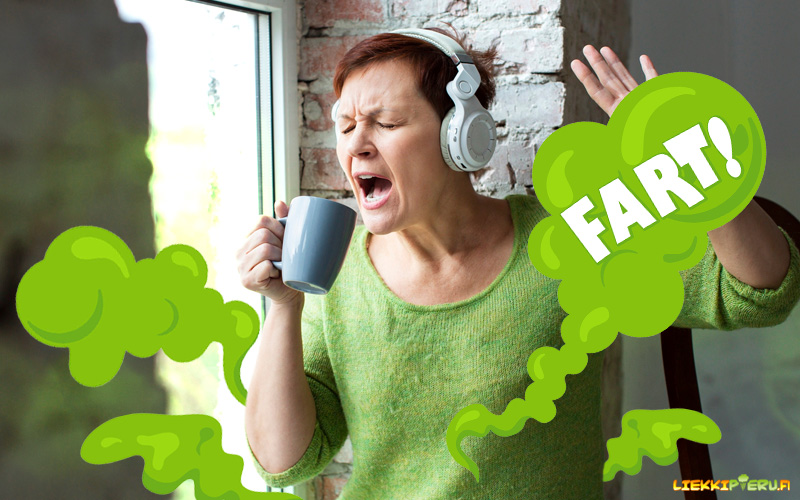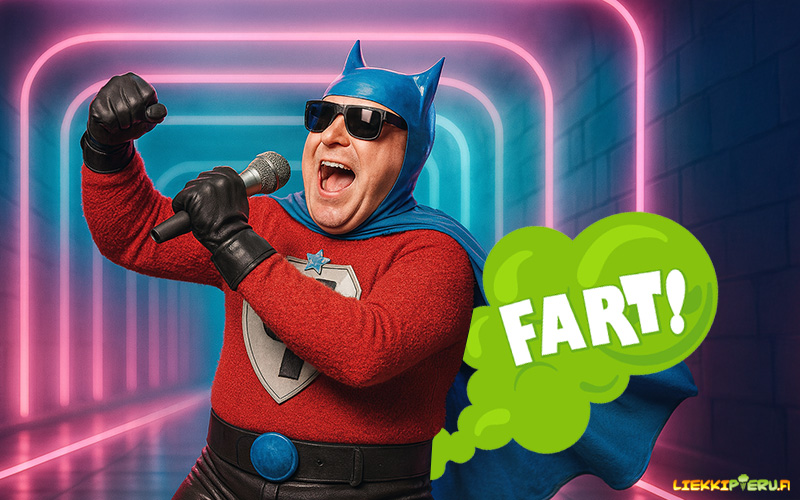
Different Farts Make Different Sounds – And Here is Why
Not all farts are the same. One might release a deep bassy fart that resonates through the couch, while another might whisper quietly like a leaking balloon. Some may sound like they´re stuck in a narrow pipe, while others resemble the pop of exploding popcorn.
A fart is like the body´s own improvisation show, where every performance is unique. Not even a symphony orchestra could replicate the tune your intestines decide to play. If a fart were a musical instrument, it would surely be a multi-instrumentalist.
Though the topic is funny (and should be), there´s a surprising amount of physiology, diet, and even psychology behind the different sounds farts make. So let´s dive deep into this fascinating world of backdoor acoustics.
A classic locker-room gag is comparing who can produce the longest or loudest fart. The physics of gas doesn´t care about time or place — only the efficiency of the exit route. The world of flatulence is full of sonic phenomena that even engineers don´t fully understand.
If you´re ready to start laughing immediately, listen to real fart sounds here and let the giggles begin. These samples prove that every fart has its own personality.
If you´ve ever wondered what a Eurovision Song Contest of farts might sound like, this video is for you. It has the whole range: from bass to treble and everything in between. Listening might cause abdominal soreness — from laughing.
The Sound of a Fart Is Physics, Not Magic
A fart, or flatulence, occurs when gas accumulates in the digestive system. This gas is mostly nitrogen, oxygen, carbon dioxide, hydrogen, and sometimes methane. Some of this gaseous buildup escapes out the back door.
At this point, the body performs like a wind tunnel test: what happens when airflow meets resistance? The more pressure, the more sound — just like opening a champagne bottle the wrong way. Thankfully, a fart doesn´t come with a cork flying at your ceiling.
The actual sound is created as the gas exits through the anal sphincter. The quality of the fart sound depends on several factors.
This makes it the human body’s very own wind instrument — no sheet music, but full of tones and variety. Sometimes the sound might even startle the farter themselves. At least you know your body is working... loudly.
- Gas pressure. The more pressure, the louder the sound. A fart building all day won’t leave quietly. It might be more dramatic than opera. If someone asks "was that thunder?", you know the answer.
- Gas speed. Rapid release creates a sharper sound. A sudden fart can come like lightning from a clear sky. It doesn´t wait for permission — it comes when it must. It might sound like a starter pistol misfiring — loudly.
- Sphincter tightness. A tight muscle produces a higher sound, relaxed a lower one. A tense butt makes a tight sound — that’s just how it goes. When relaxed, the tone gets deeper, like a jazz saxophone. Stress can tighten both sound and sphincter.
- Body position. Farting sitting, squatting, or lying down always sounds different. The squat is a fart’s best friend — offering an open route and acoustic resonance. While lying down, a fart may sneak out like a shadow in the corner — but that doesn’t mean it’s silent.
- Shape of the rectum and buttocks. Everyone has their own acoustic signature. Some have subwoofers in their backside, others a built-in muffler. Your anatomy turns each fart into a personal instrument. Even butt-cheek spacing can affect whether you produce pianissimo or fortissimo.
Low Rumbles and High Whistles
It´s amusing to realize how different fart sounds can be. One may produce a deep, growling fart that sounds like a diesel engine, while another emits a high-pitched squeal like air escaping a balloon. Some farts resemble a tractor starting, others a cheerful hiss. Both have their charm — even if the source is the same. Fart expression is as versatile as radio stations.
- Low farts result from slow, relaxed release. They´re often strong but less painful. Sometimes they make the whole chair vibrate — like an internal subwoofer. No one can pretend they didn’t hear it. This is the heavy metal of farts.
- High and sharp farts are caused by tight muscles and quick release. They´re sudden and noticeable. These resemble the "ping" of a microwave — quick, clear, and slightly startling. Not as classy as a low rumble, but definitely memorable. Perfect for making an impression.
- Stuttering farts may occur when gas encounters obstacles in the intestines, resulting in rapid-fire fart bursts. This kind can sound like a prototype machine being tested. It might trick listeners into thinking someone’s tapping on a table. But the truth — and the smell — will eventually surface.
Diet Affects the Sound
Diet plays a major role in the kind of farts produced. Some foods increase gas production, while others alter the gut microbiome, influencing both smell and sound. Every bite could be a prelude to your next fart concert. If your meal sounds windy, now you know why. A fart is your gut’s voice to the world.
Gas-producing foods:
- Beans and lentils contain indigestible sugars that lead to heavy gas buildup.
- Cabbage and broccoli contain sulfur compounds that create pungent — and sometimes loud — farts.
- Carbonated drinks increase abdominal pressure and can lead to quick, high-pitched sounds.
- Dairy products may cause bubbling guts and complex farts in the lactose-intolerant.
This list isn’t exhaustive, but it’s a great starting point for building your own fart setlist. Every plate is a potential performer. Remember: diet doesn’t just affect your body — it tunes your fart’s playlist.
Silent but Deadly
Everyone knows this: silence, then suddenly a suspicious odor fills the room. Silent farts aren’t innocent. They’re often the most potent, as they release slowly and carry sulfur-rich gases. They’re the secret agents of farts — unnoticed but impactful. You don’t hear them, but they linger in memory.
Why Do Farts Make Us Laugh?
A fart is one of the most universal forms of humor. It´s involuntary, surprising, and usually happens at the worst possible time. It relates to the body and bodily functions, making it easy to relate to and funny. It´s nearly impossible to stay serious when the air becomes a joke. Laughter is how we process embarrassment — and farts are the perfect setup.
Everyone Has a "Fart Profile"
Yes, you have your own sonic fingerprint when it comes to farting. Anatomy, diet, and lifestyle create a unique fart sound for every person. Some are known for their bassy rumbles, others for their chirpy whistles. A fart is like an acoustic calling card — unintentional but recognizable. It’s no wonder friends can sometimes identify each other by sound alone.
Should You Worry About Your Farts?
While farts are funny, they’re also a sign of how your body is functioning. If your farts are frequently painful, extremely smelly, or you experience excessive gas, it may indicate digestive issues, lactose intolerance, or gut imbalance. On average, people fart about 10–25 times a day. So if you feel gassy, you´re not alone. Your stomach isn’t your enemy — it’s simply playing its own concert.
And for a little more laughter from the world of farts, we recommend the classic joke: What´s the difference between music critics and wine reviewers reacting to a fart? — now that´s flatulence humor at its finest.
Farts are more than just sounds. They are the sounds of life — literally. They signal that your intestines work, that you’re alive, and that somewhere inside you lives a tiny comedian.
And remember: if a fart doesn’t make you laugh, it might still be inside.























